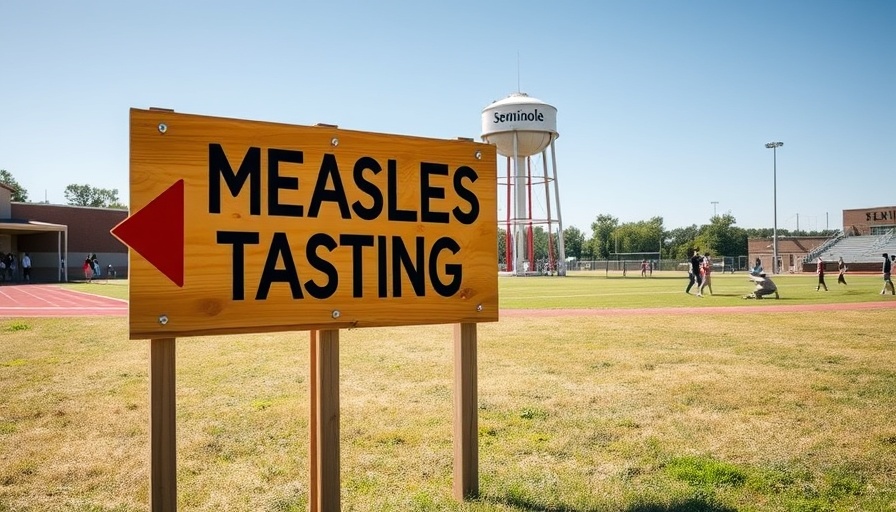
Is Your Local Emergency Room Prepared for Upcoming Changes?
Imagine a sunny day in Myrtle Beach, the sound of waves crashing against the shore, families enjoying a carefree afternoon. Suddenly, an accident occurs—whether it’s minor or severe, every family trusts that their nearby emergency room is just moments away, equipped to handle emergencies without hesitation. However, due to impending changes in healthcare policy, that very assurance is facing a tremendous risk.
The Impact of Provider Tax Cuts on Emergency Services
Recently, a somewhat unnoticed adjustment in legislation, encapsulated in the "One Big Beautiful Bill Act," is set to directly alter the landscape of emergency care across the nation. As the provider tax is reduced from 6% to 3.5%, hospitals and related healthcare institutions may face severe staffing shortages, which threatens the timely care residents expect.
The provider tax, utilized by 47 states to fund Medicaid, plays a pivotal role in maintaining adequate healthcare facilities. When hospitals pay into this tax, they effectively unlock necessary federal funds, which flow back into the system to ensure that emergency rooms (ERs) are capable of functioning efficiently. Slashing this tax may initially appear as a straightforward budget cut, but it threatens to create a domino effect that ends with overwhelmed ERs.
A Closer Look: The Ripple Effects of Nursing Home Closures
In South Carolina—where many residents cherish the beach community and enjoy a healthy lifestyle—the implications of nursing home closures are particularly alarming. A recent analysis indicates that more than 600 nursing homes across the country could close as a result of this provider tax adjustment. In our communities—like Pawleys Island and Murrells Inlet—this translates to fewer available beds and resources when individuals transition from hospitals to nursing homes for recovery.
Data show that without adequate post-hospital care facilities, patients may flood local ERs, waiting for hours in a crowded room as they compete with others needing immediate care. Picture a scene where parents anxiously tend to their injured children among a throng of individuals seeking urgent medical attention. The current scenario could quickly morph from a manageable situation into a chaotic emergency where staff members are forced to make uncomfortable decisions about patient care.
The Future of Health Care in Our Communities
What does this mean for families residing in beach towns from North Myrtle Beach to Surfside Beach? The very essence of community health is intertwined with accessible medical resources. As the possibility of door closures increases, overburdened emergency rooms will struggle more to meet the needs of residents. Queries about timely medical assistance will weigh heavily on the minds of residents, many of whom might feel uncertain and anxious about the future of their healthcare.
Securing public health is an ongoing responsibility for both local and state governments. The interconnectedness of healthcare systems means that any policy change carries significant weight; more than just statistics, it involves real lives. Families should stay informed and engaged—push for discussions on public health at local town meetings or community forums, acknowledging that local representatives can help address these impending challenges.
Considerations for Local Residents
Understanding these emerging health care dynamics provides both knowledge and urgency for residents across the Grand Strand. Health literacy is instrumental for making sound decisions, whether it involves safe and healthy activities for your family or being prepared for unexpected medical crises.
Additionally, consider exploring alternative, community-oriented health initiatives that emphasize preventative care and overall wellness, thus mitigating the potential need for emergency services in the first place. Engaging in healthy lifestyle choices can go a long way in ensuring that an emergency room visit is not frequently needed. Be proactive, stay informed, and work with community leaders to voice your concerns about healthcare availability.
Final Thoughts: Your Voice Matters
As we stand on the brink of significant change to our healthcare system, remember that by being knowledgeable and advocating for equitable healthcare, residents can help maintain the integrity of local emergency services. Now is the time for community action, collaboration, and progress—because when it comes to health, every moment matters.
 Add Row
Add Row  Add
Add 





Write A Comment